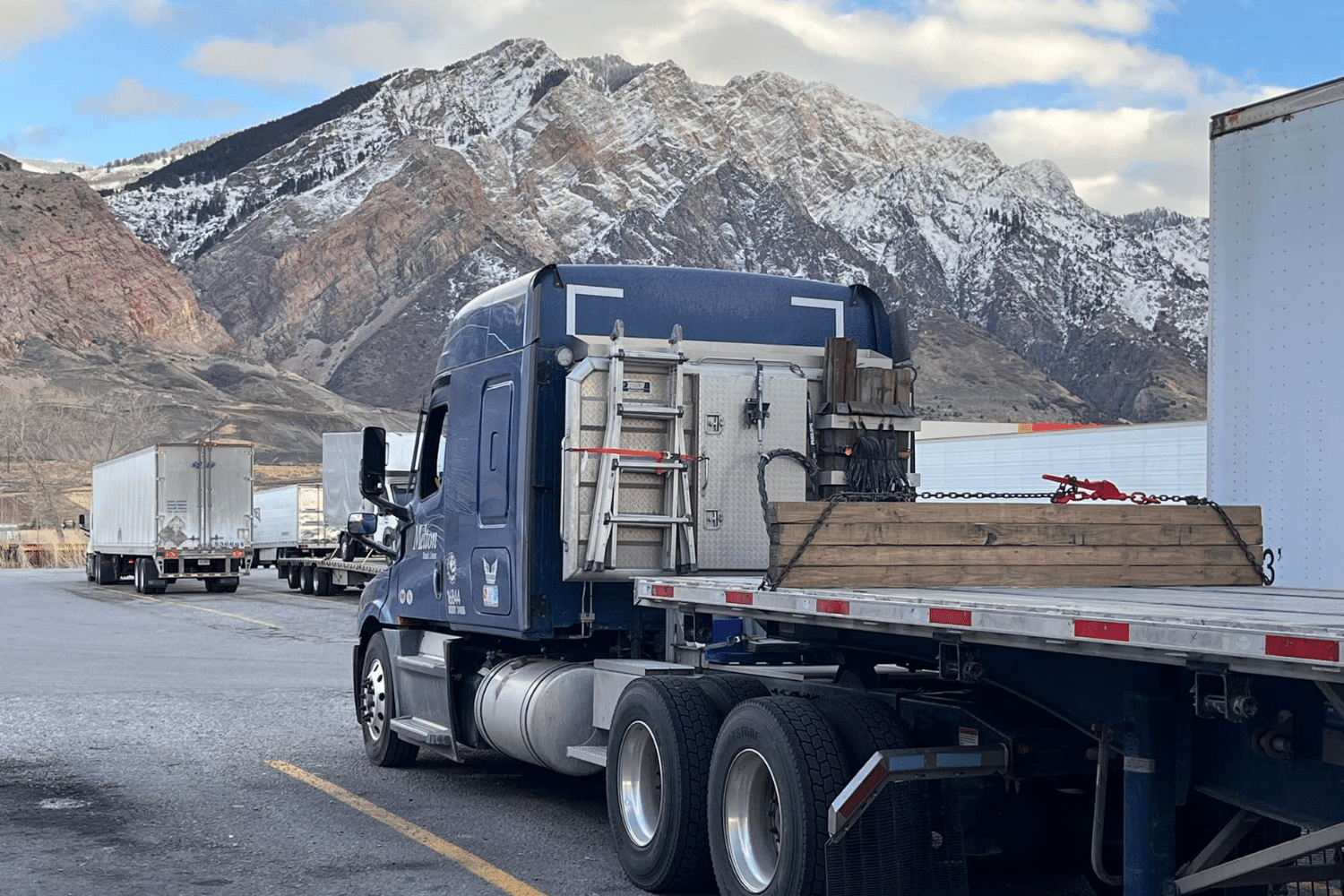
How to Navigate Weigh Stations: A Guide for Truck Drivers
Weigh stations are an essential part of a driver’s route, serving to enforce compliance with weight regulations and ensure road safety. For those new to the trucking industry, though, it can be intimidating to know all the rules and regulations that come with your vehicle’s weight. Navigating them successfully can save you time, money, and stress.
Here’s a quick guide to help new drivers understand weigh stations and breeze through inspections.
What Is a Weigh Station and What Do They Look Like?
Weigh stations are checkpoints established by transportation authorities to monitor the weight of commercial vehicles and ensure compliance with federal and state regulations. They are typically located along major highways and interstates, near state borders, or at points of high truck traffic.
A weigh station usually consists of:
- A main building where officials conduct inspections and process reports.
- Weighing equipment, such as static scales or weigh-in-motion systems.
- Signage and lanes directing trucks to enter or bypass the station.
- Parking areas for vehicles that require additional inspection.

Some weigh stations also feature PrePass systems, allowing qualifying drivers with a transponder in their cab to bypass if their credentials are in order. One of the main requirements for the PrePass system is maintaining an eligible safety score. If you are a company driver, your company will let you know if you qualify for the program.
Why Do I Need to Stop at a Weigh Station?
The primary focus of a weigh station is to ensure compliance with proper weight and equipment requirements, but it’s also responsible for more than that. They are used to identify equipment issues, hours of service violations, and other factors that impact a driver’s overall safety score.
A driver that gets the ‘green light’ to skip a station, whether via PrePass, the station being closed or out of service, can avoid having to stop; otherwise, it’s illegal to pass a station without the proper authorization.
Skipping a weigh station could incur fines and an Out of Service violation on the driver’s records. In the worst-case scenario, depending on the state, it could result in penalties to the driver and company, as well as possible jail time.
When Do I Need to Stop at a Weigh Station?
The rules for stopping at weigh stations vary by state and situation, but generally, you need to stop if:
- You’re operating a commercial vehicle exceeding 10,000 pounds gross vehicle weight.
- The weigh station’s open sign is illuminated, signaling all trucks to pull in.
- An officer waves you into the station or your electronic PrePass system signals you to stop.
Even if your trailer is empty, some states require you to stop, unless signs specifically state otherwise. Always make sure to check your route’s requirements to avoid missing a stop and incurring fines during your pre-trip phase.
When in doubt, follow proper signage and speak with the inspection agents on site whenever possible.
What Is Inspected at a Weigh Station?
While the primary focus of a weigh station is on weight compliance, inspections may go beyond just the scales. Some of the most common checks include:
1. Weight Compliance: Ensuring your vehicle does not exceed Gross Vehicle Weight Rating or axle limits.
2. Permits and Documentation: Logbooks or ELD records can be reviewed for Hours-of-Service violations. Inspectors may also review your license or permits to ensure they are not invalid or expired.
3. Vehicle Condition: Brakes, lights, tires, and other safety-related components.

How Can I Prepare for a Successful Inspection?
Preparation is key to minimizing delays and avoiding violations. Here’s how to get ready:
1. Maintain Vehicle Compliance: Perform thorough pre-trip inspections, checking tires, brakes, lights, and securement systems. Make sure to address any maintenance issues before hitting the road.
2. Organize Your Paperwork: Keep your CDL, medical certificate, registration, and other required permits in a designated folder for easy access and ensure ELDs are functioning correctly and up to date. If your ELD is down, make sure you have a paper logbook as backup.
3. Monitor Load Weight: Know your weight distribution and double-check scales before departure. If you’re hauling near-maximum capacity, ensure compliance with axle weight limits.
4. Stay Alert: Watch for signs indicating open weigh stations and the need to stop. If you have a PrePass, confirm the signal before bypassing.
5. Be Professional: A positive attitude can go a long way. Be respectful and cooperative with inspectors.
Navigating weigh stations doesn’t have to be daunting. With the right preparation and understanding of procedures, you can ensure smooth stops and maintain compliance on the road. Remember, weigh stations are there to promote safety and fairness for everyone on the road- so approach them as part of your professional responsibility. At Melton, our drivers are prepared with all the knowledge they need to pass weight inspections – see what else our drivers learn on our pre-hire evaluation page.
